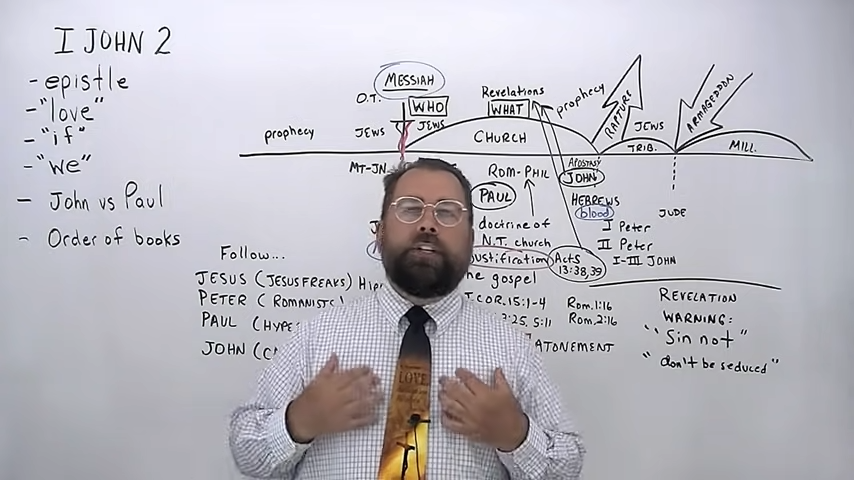Insights
The significance of Jesus’ sacrifice and forgiveness
🤔 The importance of rightly dividing the word of truth and recognizing the significance of the Apostle Paul, who is mentioned in two-thirds of the New Testament.
🙏 John reminds believers that if they do sin, they have an advocate in Jesus Christ with the Father.
🙏 Christians should strive to avoid sin, but when they do sin, Jesus intercedes on their behalf and God sees them as forgiven and cleansed.
🔒 When we are saved by faith in the blood of Christ, we are sealed with the Holy Spirit, guaranteeing eternal security and forgiveness for all our sins.
🩸 We are forgiven through the blood of Jesus Christ, and our sins are justified based on what He did for us.
🙏 Jesus is our propitiation, appeasing God’s wrath and showing us grace, mercy, and forgiveness.
🙏 Accepting Jesus’ payment for our sins requires acknowledging our guilt and understanding that we deserve punishment, but through this acceptance, we can receive forgiveness from God.
⚖️ Jesus, the righteous one who never sinned, died in our place as the innocent for the guilty, serving as the propitiation for our sins and for the sins of the whole world.
Understanding and interpreting biblical prophecies
📜 The Old Testament prophesied Jesus’ sacrifice, and it was only understood after His crucifixion, bringing clarity to the prophecy in Isaiah 53.
😇 The sacrifice of Jesus pleased God, who counted it as a propitiation and offered acceptance to those who accept it.
Summary
TLDR: The key idea of the video is that studying and applying the teachings of biblical figures like Paul, in addition to following Jesus, is essential for salvation and understanding the transition from the early apostles to the doctrine of Paul and the future prophecy of Revelation.
- 📚 The speaker emphasizes the importance of studying the book of 1 John, which highlights the need for love among Christians and addresses questions from other believers.
- 📚 John tells the churches to repent for turning away from Paul, who was chosen by God, and aligns with him throughout the book; the books of Matthew, Mark, Luke, and John are considered part of the Old Testament until Jesus’ death, and Acts marks the end of Paul’s ministry at the rapture, after which God goes back to dealing with the Jews.
- 📚 The speaker emphasizes the importance of Paul’s teachings in the New Testament, highlighting their relevance to the church age and the tribulation, and emphasizes the significance of the books of Jude, 1 John, 2 John, Acts, and Revelation in understanding the transition from the early apostles to the doctrine of Paul and the future prophecy of Revelation.
- 📚 Following Jesus alone is not enough for salvation; one must also study and apply the teachings of other biblical figures like Paul, as seen in the book of 1 John.
- 📚 The book of 1 John warns against sin and deception, emphasizing the importance of belief in Jesus for eternal life, aligning with Paul’s teachings of salvation by grace through faith, while cautioning against the Catholic Church’s emphasis on priesthood and works.
- 📖 True Christians believe in salvation through faith alone, not by works or a combination of faith and works, as taught by Martin Luther in the Protestant Reformation, while the Bible teaches believers to strive against sin and not continue to sin, using grace as an excuse to sin shows a lack of humility and desire to serve God.
- 🙏 Jesus is our advocate, forgiving our sins and ensuring eternal security, imputing his righteousness onto us in the eyes of God.
- 💡 Jesus paid for our sins on the cross, offering salvation to those who accept it through faith in his blood atonement, not based on our own actions but on trusting in Jesus alone.


